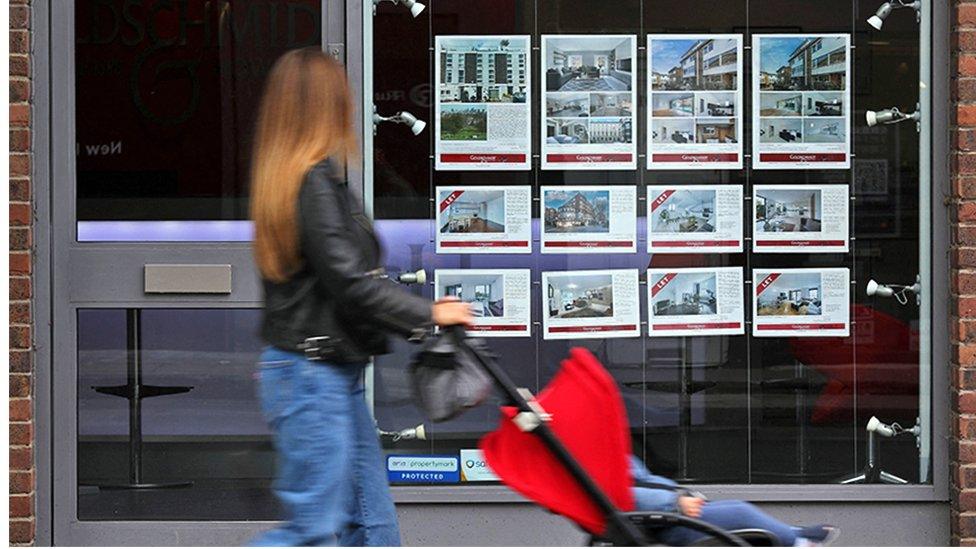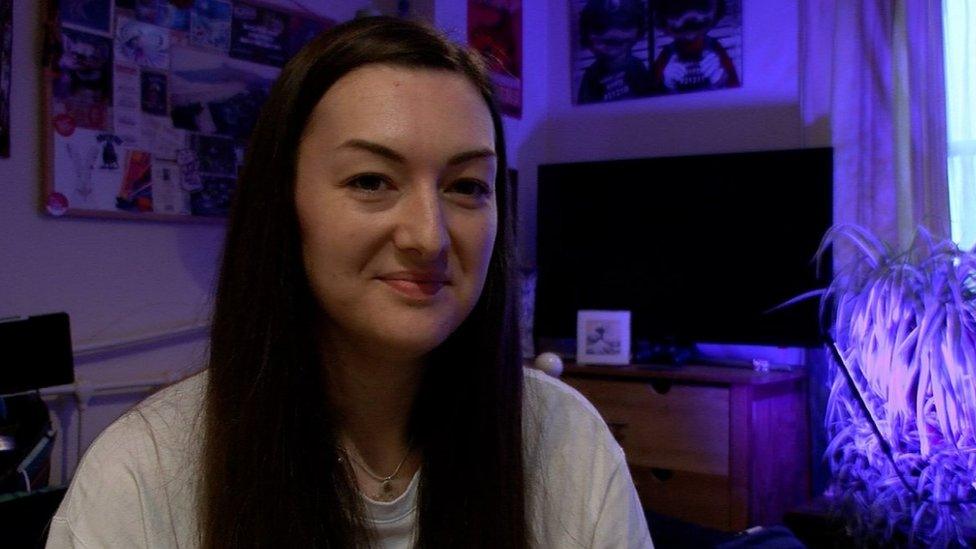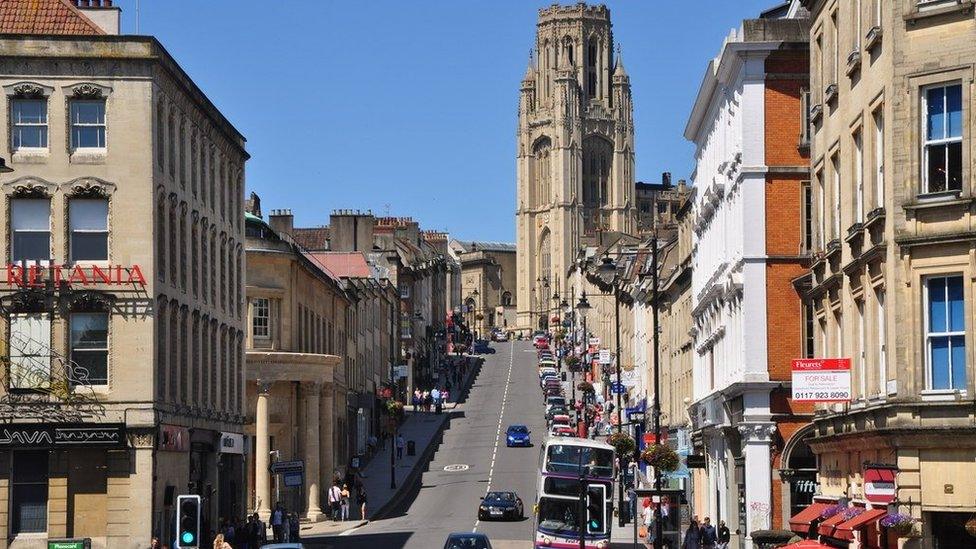Bristol tenants face Wild West rental market, says mayor
- Published

Rents in Bristol have risen on average by 52% in the last 10 years, Marvin Rees said
Tenants in Bristol are facing a Wild West rental market as prices outstrip wages, the mayor says.
Marvin Rees said there was a need for controls as renters face some of the highest rates outside London.
He called for local authorities to be given greater powers to intervene.
A government spokesperson said rent controls do not work in the private sector and lead to "lead to declining standards, a lack of investment and may encourage illegal subletting".
Speaking to BBC Radio 4's Today programme on Monday, Mr Rees said on average rents had risen by 52% in the last decade, with wages rising by just 24%.
"There has been no real change in our regulatory powers as a local authority to keep up with the changing nature of the housing market. We are taking old tools to new challenges," he said.
"I recognise there is complexity but what we certainly need is intervention in the rental market.
He described the situation in Bristol as the "Wild West of the rental market," with prices rising out of all proportion to people's income.
'Public health intervention'
Mr Rees said the problem was harming the city, because people in vital professions cannot afford to live there.
"A good-quality home is one of the most significant public health interventions we can make that will give us more resilience against future pandemics such as Covid," he said.
"It means that we can actually recruit teachers and nurses to Bristol, which we are struggling to do now because of the affordability. It makes for more settled communities."
A living rent commission was set up in Bristol in July last year to come up with recommendations to ensure people can live in the city.
It includes council representatives, tenants' groups, housing developers and landlords.

High rents mean people in key professions such as teaching and nursing struggle to live in Bristol, Mr Rees said
Among issues under consideration is whether there should be more incentives for landlords to provide privately rented properties.
Some say there are more tax breaks for people who provide holiday lets than for those who provide long-term accommodation.
Mr Rees told the programme: "We have to recognise that some landlords just will be very small people who have invested in a property for their pension.
"That does not make them bad, that just means that whatever has happened to them financially in our pensions system has not supported people so they are driven to a cannibalisation of the housing market. We have to take that into account.
"It has to be part of a wider approach, (and) that means building homes as well."
Rent controls 'do not work'
A spokesperson for the Department for Levelling Up, Housing and Communities said a new bill, which had its first reading in Parliament in May, would help renters.
"While we acknowledge that some areas are facing high rent increases, particularly for new lets, the rental price for all private rents across the south west has increased below inflation - at 4.6% in the 12 months to April 2023.
"Evidence shows that rent controls in the private sector do not work.
"Our Renters Reform Bill will deliver a fairer deal for renters, including empowering them to challenge unjustified rent increases and banning Section 21 'no fault' evictions."

Follow BBC West on Facebook, external, Twitter, external and Instagram, external. Send your story ideas to: bristol@bbc.co.uk , external
Related topics
- Published12 May 2023

- Published21 March 2023

- Published7 January 2023
